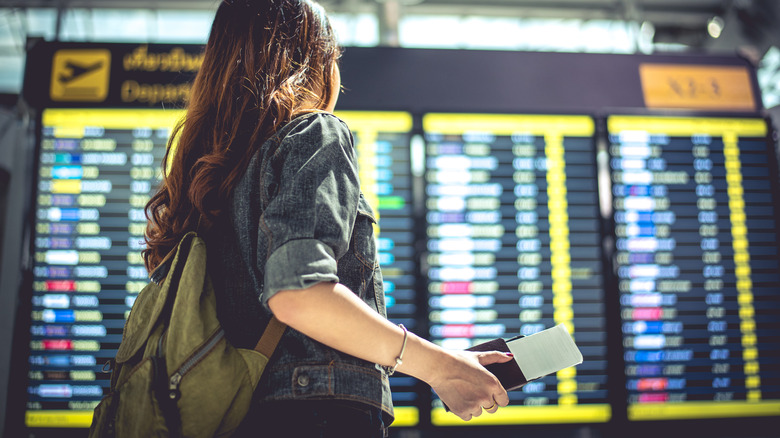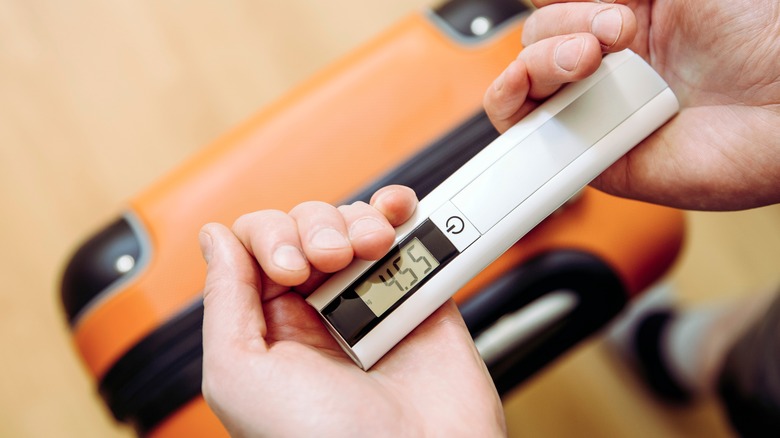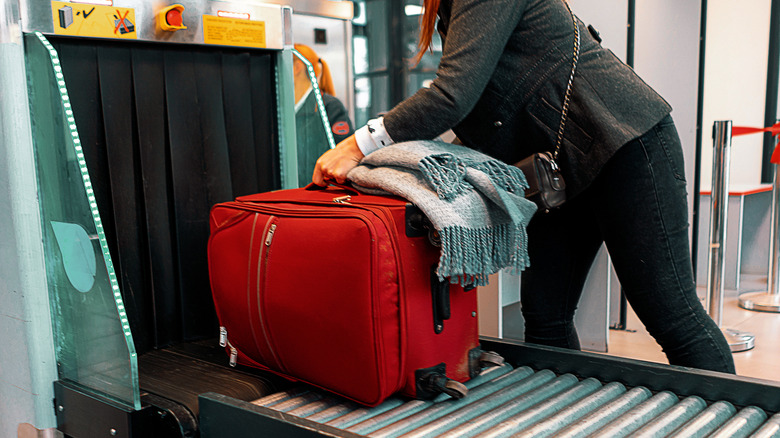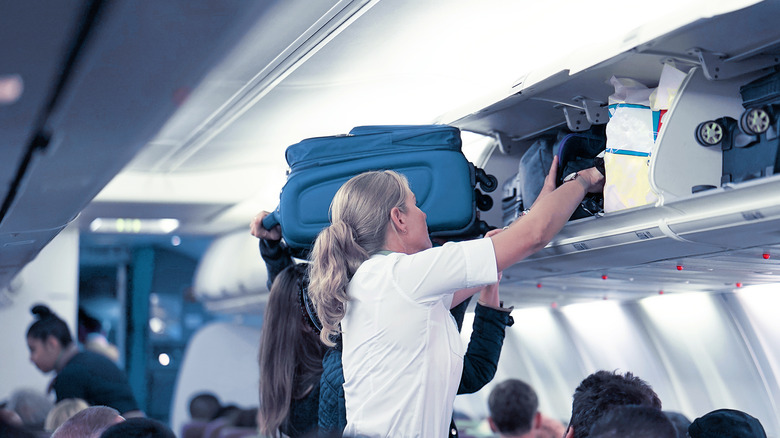Here's How To Avoid Those Pesky Excess Baggage Fees
Baggage fees have been a hot topic since airlines started implementing them in 2008 due to the Great Recession. It's an unfortunate reality travelers must live with today because if you're not careful, you could end up paying hundreds of dollars on top of an already expensive airfare.
According to FareCompare, it's not likely airlines will stop imposing baggage fees because for the most part, passengers have mostly accepted them as part of the cost of flying. In a 2018 research paper published in the journal Transportation Research Part A: Policy and Practice, Woohyun Cho and Martin E. Dresner noted that passengers didn't opt to fly with airlines offering free baggage but chose to continue flying with airlines that impose baggage fees, checking in fewer bags instead. Second, and perhaps most importantly, airlines are raking in billions of dollars annually in baggage fees. Data from the Bureau of Transportation Statistics shows that in 2021 alone, baggage fees amounted to around $5.3 billion.
Excess baggage fees vary by airline, but don't let a potentially huge expense catch you by surprise. With a little research and preparation, you can avoid paying excess baggage fees altogether. Here are some tips.
Ensure you're not bringing excess baggage
First, go light. Pack light and use lightweight luggage. Yahoo! picks the IT Luggage World's Lightest Large 4-Wheel Soft Suitcase as the best lightweight bag for check-in, while The Sun chose the Aerolite Lightweight 55 cm Hard Shell 34L Carry On Hand Cabin Luggage Suitcase. Meanwhile, Oprah Daily recommends the Vacay Glisten Vibrant 22-Inch Spinner Carry-On in Blue for international travel. Whatever you pick depends on your needs, but according to Kipling, the best lightweight luggage should weigh 4-6 pounds, though you can also use medium-lightweight (5-7 pounds) and large-lightweight (8.5-13 pounds) luggage.
You should also invest in a portable luggage scale. Avoid any excess baggage surprises by bringing along a luggage scale with you, which you can use on your return journey too. Use it to double-check if you're within or beyond the weight limit so you can adjust accordingly. CNN recommends the Freetoo Portable Digital Luggage Scale (around $16).
Check in baggage for free
Fly with airlines that offer free checked bags. There are situations when it's just not possible to travel without a checked bag. In this case, you can still avoid paying excess baggage fees if you book a flight with airlines that check in your bag for free. For instance, Southwest allows passengers to check in two bags for free.
If you're a frequent flyer and have a preferred airline, you should work on earning airline elite status. Join its free loyalty program, which will allow you to earn points or miles for each flight booked with the airline. You can use these points or miles to pay for future flights, redeem rewards, or credit them toward elite status. Elite status comes with several benefits, including free checked bags. For instance, American Airlines' AAdvantage program will let you check in one to three bags for free, depending on your elite status. AAdvantage Gold members can check in one free bag for free, AAdvantage Platinum can check in two bags for free, and AAdvantage Platinum Pro and AAdvantage Executive Platinum can check in three bags for free.
You could also book your flight with an airline co-branded credit card. These cards offer rewards, such as free checked baggage, when you book your airplane ticket with them. Some examples include United Club Infinite Card, United Quest Card, and United Business Card, which lets you check your first and second bags for free; and AAdvantage Aviator and Citi/AAdvantage cards, Delta SkyMiles Reserve cards, and Alaska Airlines Mastercard and Visa cards — all of which provide complimentary check-in for your first bag.
Avoid checking in baggage
If possible, don't check in any baggage, or note which items you can check in for free. Easier said than done for some, for sure, but it's something worth considering, especially on domestic flights.
You can pack your carry-on to its full capacity. Stuff everything into your carry-on bag when flying with airlines that have a free carry-on policy, such as American Airlines (one free carry-on for Basic Economy) and JetBlue Airways (Blue, Blue Plus, Blue Extra, and Mint fares). Jennifer Yellin, founder of Deals We Like and writer at The Points Guy, even goes on to advise including heavy items in your carry-on. Note, however, that not all airlines offer free carry-on, so check your airline's carry-on policy to be sure. For instance, Allegiant Air charges $10 to $75 for carry-on.
You should also know what items you can check in for free. This depends on the airline you're flying with, but some like Frontier Airlines will check in some select items for free. This includes strollers, diaper bags, and certain medical devices.



